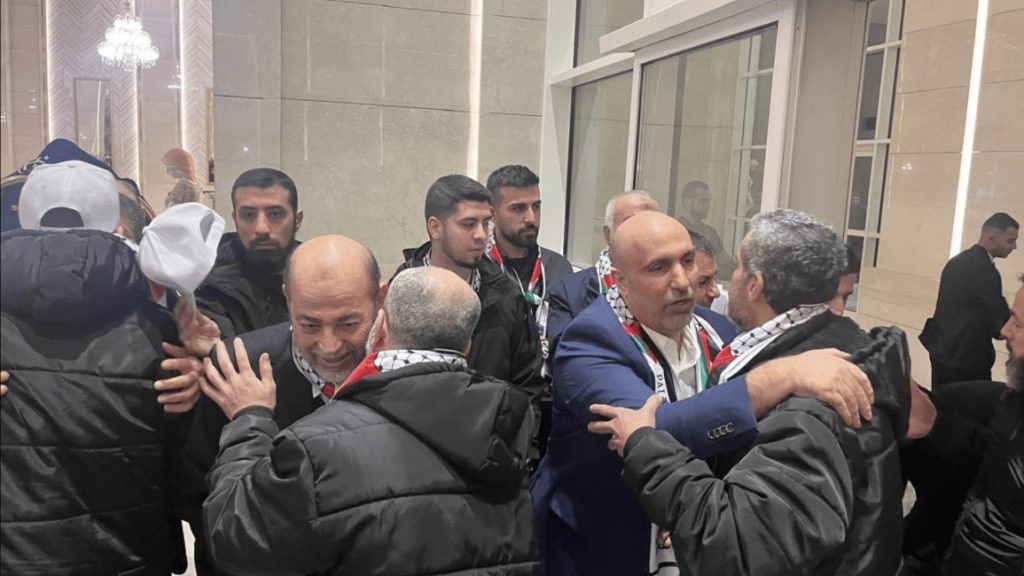Egypt Refuses to Accept 20 Freed Palestinian Prisoners as Deportation Stalls
Palestinian prisoners released in the Israel-Hamas exchange remain stranded in Gaza as Egypt sets new conditions for their transfer, delaying their relocation to third countries.

Watan-The Hebrew-language radio station “Kan Reshet Bet” reported on Thursday that Egypt is refusing to receive 20 Palestinian prisoners, some of whom had been serving life sentences in Israeli prisons before being released as part of the prisoner exchange deal between the Israeli government and Hamas.
According to the Israeli Broadcasting Authority’s radio station, these prisoners have been waiting in the European Hospital in Khan Younis, Gaza, since their release about a week ago.
The report states that these prisoners were released in the third batch of the exchange deal, which coincided with the release of Israeli hostages Agam Berger, Erbel Yehud, and Gadi Moshe Moses. The station claims that these prisoners were supposed to be deported abroad.

So far, Israel has deported about 100 prisoners, as per the agreement, with Egypt acting as a temporary transit hub under its mediation of the ceasefire agreement. However, Egypt now requires that some of the already transferred prisoners be relocated to third countries before accepting additional prisoners. Currently, Egypt holds more than 60 released prisoners.
Sources familiar with the details, cited by Reshet Bet, say that apart from 15 prisoners who were transferred to Turkey this week, most of the released prisoners have not yet reached their final destinations. While Egypt agreed to receive seven prisoners from the fourth batch, it is now refusing to accept 20 prisoners from the third batch.
Among the “stranded” prisoners in Gaza is Mohammed Abu Warda, a Hamas member who was sentenced to 48 life terms, making him the prisoner with the highest number of life sentences released in the deal so far. Israel accuses Abu Warda of involvement in Hamas-led attacks in the 1990s, including the two bus bombings on Jerusalem’s Route 18 in 1996, which killed 44 Israelis.

The group also includes Sami Jaradat, a member of Islamic Jihad, who Israel accuses of being one of the masterminds behind the 2003 Maxim restaurant bombing, which killed 21 Israelis.
It is worth noting that Israel’s Prison Service transfers released prisoners to the Kerem Shalom crossing, where those designated for deportation are supposed to cross into Egypt with assistance from Egyptian authorities.






